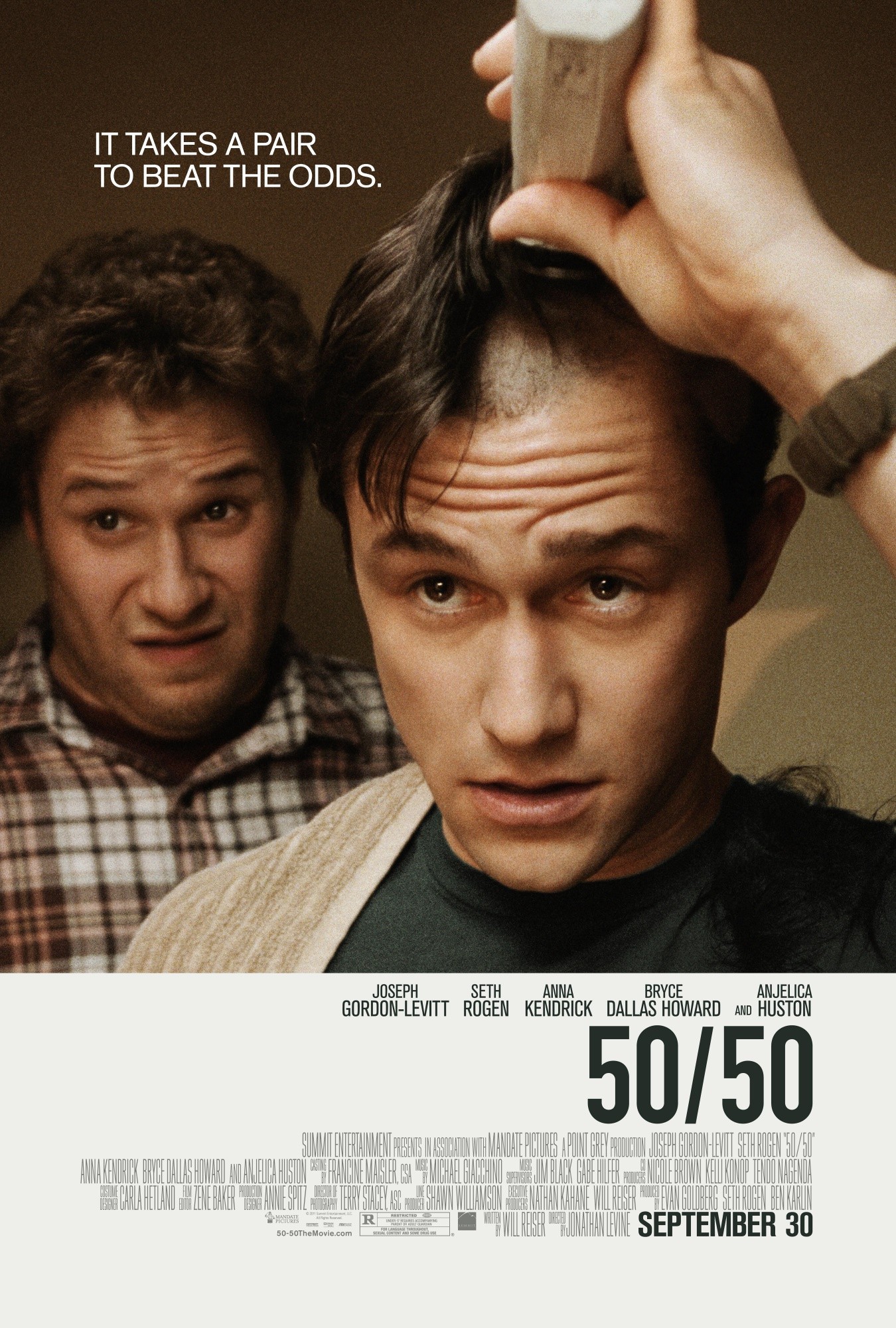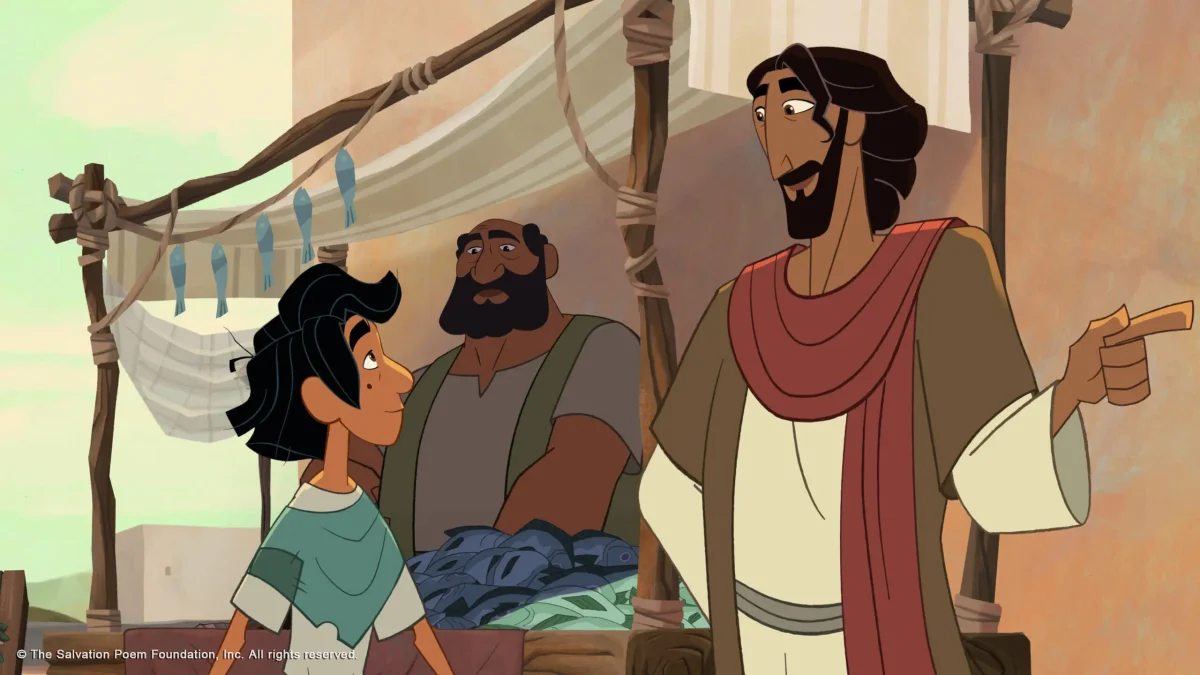Cancer can be a funny thing, at least in the latest buddy movie “50/50.” Adam (Joseph Gordon-Levitt) is an inexcitable 28-year-old who works at the local Seattle public radio station and never takes risks. After his doctor finds a tumor in his spine and gives him a 50 percent chance of survival, his pal Kyle (Seth Rogen) goes at great lengths to cheer him up and offer him advice.
Simple yet realistic
Directed by Jonathan Levine and loosely based on the life of screenwriter Will Reiser, the movie is as simple as it sounds. Dealing with the harsh realities of cancer, “50/50” manages to stay light with guy humor, while also managing to tackle the tough subject matter in an incredibly thoughtful way.
Everything in the film feels realistic — the dialogue, the characters and the attitudes. With a brilliant ensemble of actors, the cast gives nothing but real portrayals of how cancer in one person’s life impacts everyone around them and how they all try to deal with it.
Nothing is idealized, nothing is overly sentimental. Gordon-Levitt plays Adam as pathetic as he is likable in a way that we can feel his pain, as uncomfortable as that may be.
Dramatic plot with comedic relief
If you’re looking for a laugh-out-loud comedy, “50/50” is not it. Instead, it is a dramedy that goes for as many tears as laughs. Sure, Rogen serves as the comedic relief and best buddy to Gordon-Levitt, but in this case Rogen’s character is more abrasive than lovable. Throughout the movie Kyle is blunt, selfish and obscene, seemingly showing little regard for his ailing friend. Being more concerned with scoring chicks through capitilizing on Adam’s disease, Kyle doesn’t show his true value as a friend till later.
Emphasis on relationships
“50/50” goes to great lengths to portray how cancer affects relationships. It’s interesting to watch how each character reacts when they first hear the news. In some cases Adam comes closer to those around him, in others, things fall apart. Bryce Dallas Howard is believable as the disconnected live-in girlfriend, Rachael. It’s clear from the start that things are not going well between Adam and Rachael. After he reveals to her his cancer he keeps offering her an “out” from the relationship. She keeps showing up half-heartedly throughout the film sticking around only out of guilt.
Kyle discovers Rachael is cheating on his buddy and he doesn’t waste any time in confronting the situation in his own unique, harsh manner. Things get ugly fast, culminating in a memorable movie breakup moment. It’s somewhat difficult to accept Howard as the bad guy, because she plays the role so humanly. Nevertheless, her character serves as the lightning rod for all of Adam’s frustrations.
Indeed, Adam is so demure throughout the film that you’re just rooting for him to show any kind of emotion. As the chemotherapy starts to take its toll, Adam starts to reflect on his life and mortality. Things get a little a darker, but he finds solace in his new counselor Katherine (Anna Kendrick). Katherine is everything that Adam’s friends and loved ones are not — sympathetic, understanding and the voice of reason in a time of confusion. Both characters have a lot to learn from each other and it’s charming to watch the interplay between the two in counseling sessions. They compliment each other so well that you can’t help but root for the boundaries of the doctor-patient relationship to come crashing down.
Adam ends up finding a lot in common with his chemo-buddies, Mitch and Alan, played by veteran character actors Matt Frewer and Philip Baker Hall respectively. They offer sage advice and doses of humor as they share medicinal marijuana with their new partner in recovery.
Perhaps Adam’s most difficult relationship is with his parents (Anjelica Huston and Serge Houde). His mother is overly protective and worries about everything while taking care of his father who is suffering from Alzheimer’s. Adam struggles to allow his mother into his life who wants to be part of every detail of his treatment — yet another realistically human character in the movie portrayed so well by Huston. It’s only through his sessions with Katherine that he learns just how much he needs his parents to survive his ordeal.
In spite of a few early laughs, things get more sobering and more touching as the film rolls along. By the time Adam is ready to face his potentially fatal spinal surgery, emotions run extremely high as he says his potentially weepy goodbyes. However, the final scene is a sweet relief of gross-out humor and open-ended possibility as Pearl Jam plays over the end credits. Ultimately, “50/50” succeeds as a light comedic drama with a lot of heart. You’ll chuckle, you’ll cry and odds are you’ll be extremely satisfied with “50/50.”







